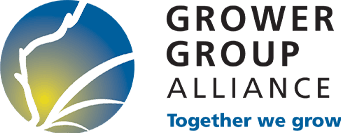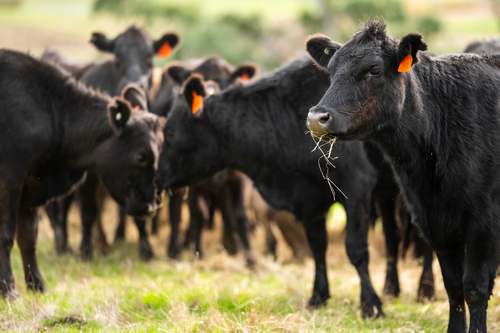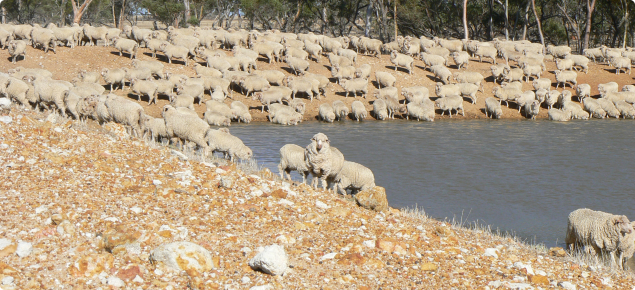This repository of Livestock Resources comprises the latest research, government regulation updates, biosecurity management information, and a series of extension workshops and training offered in this agricultural sector.
Water Quality
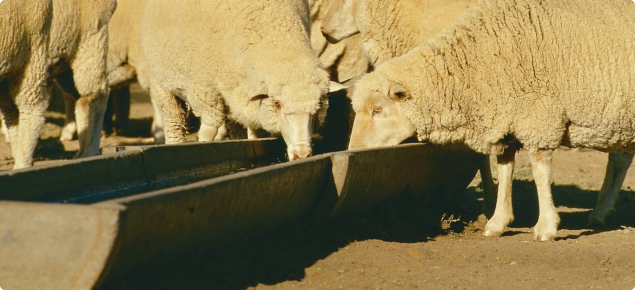
Livestock water requirements and water budgeting for south-west Western Australia
Information on this page will help livestock owners calculate a water budget – before problems develop – to complement a feed budget. Access the DPIRD resource here.
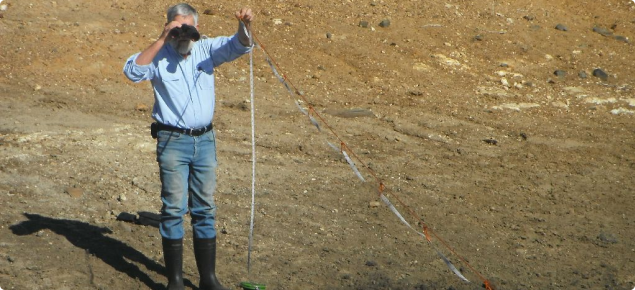
Calculating farm dam (excavated earth tanks) water volume
The Department of Primary Industries and Regional Development recommends you estimate dam volumes at the beginning of summer, and budget water supplies for the critical periods. Access the DPIRD guide here.
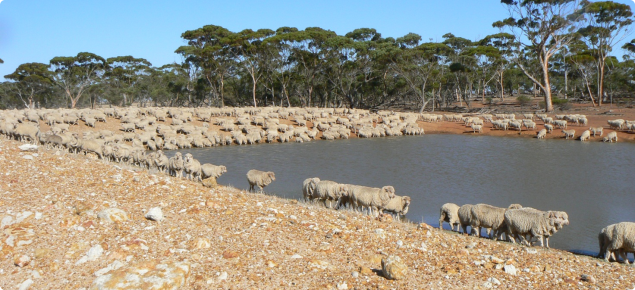
Blue-green algae poisoning in livestock
Blue-green algae can produce neurotoxins, liver toxins and skin allergens. Livestock, dogs and people can be poisoned by ingestion of algae either in the water or as dried mats on the shore, or from drinking water where algal death has released considerable toxins into the water. Find out more about the risks here.
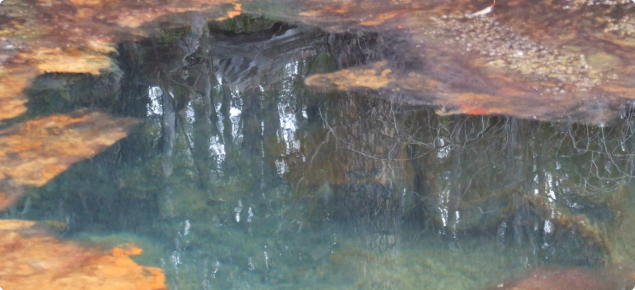
Managing blue-green algae on farms in Western Australia
The Department of Primary Industries and Regional Development recommends regular monitoring of farm water supplies for blue-green algae. Find out more about managing this livestock risk here.
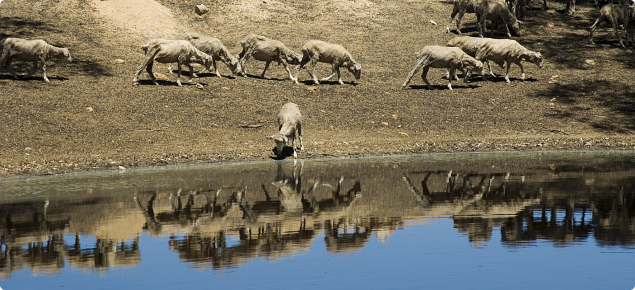
Contaminated farm dams – Western Australia
There are several practical ways of preventing contamination, clearing organic material from dams before it causes a problem, and several ways of making contaminated water more drinkable and safe for livestock. Find out what they are here.
Emergency Animal Diseases (Livestock & Biosecurity)
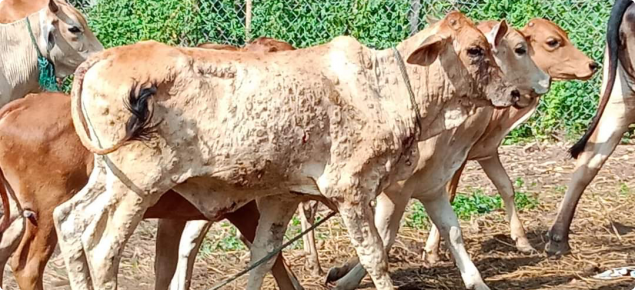
Emergency Animal Disease Hub: foot-and-mouth and lumpy skin diseases
The threat of two significant livestock diseases, foot-and-mouth disease (FMD) and lumpy skin disease (LSD) has highlighted the importance of emergency animal disease prevention and preparedness following the detection of these diseases in Indonesia in 2022. Find out more at the Emergency Animal Disease Hub here.
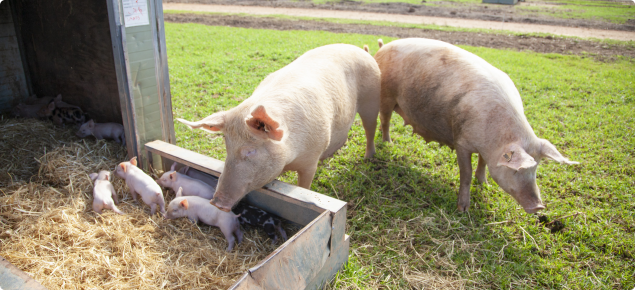
African swine fever – biosecurity resources for producers
Every pig owner has a vital role in reducing the risk of this disease occurring in Australia. Click through for resources Western Australian pig owners can use to reduce the risk of the disease entering their herd or pet pigs here.
Dry Season Resources
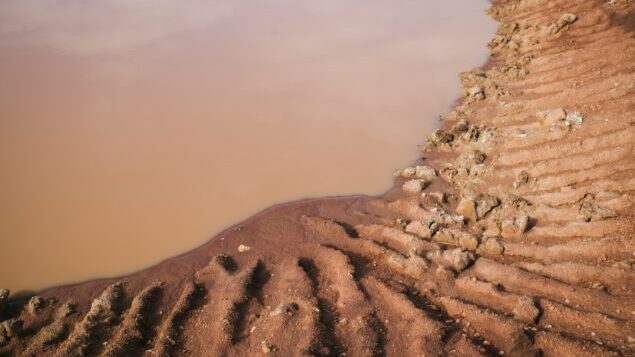
SW WA Drought Hub – Dry Season Resources
The South-West Drought Hub has pulled together valuable resources in one location for the livestock, grains and horticulture industries. These resources will be continuously updated on an as-needed basis. Browse them here.
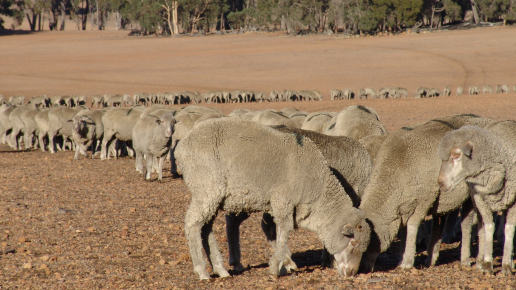
Season 2023: information for WA farmers
The Season 2023 webpage contains seasonally relevant information and management options in the broadacre agricultural areas of Western Australia. Regular review and updated information is coordinated through DPIRD’s Farming Systems Innovation – Regional Intelligence and Adoption branch. Browse here.
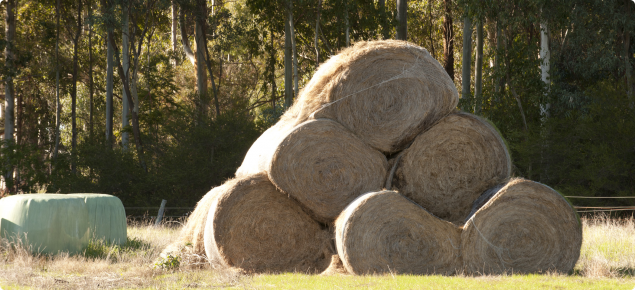
Alternative feed sources for sheep
During dry times and drought, there is a wide range of alternative feedstuffs that can be used to maintain and grow stock. Some of these feeds can have health risks, or should not be used as the sole food source as they may lack sufficient energy and protein. Learn more here.
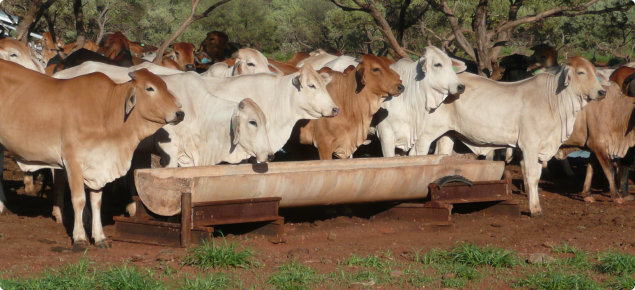
Dealing with a dry year in the southern rangelands of Western Australia
This page provides pastoralists with information to support them in a very dry year, in the southern rangelands of Western Australia. Browse the DPIRD resources here.
Livestock Research & Development
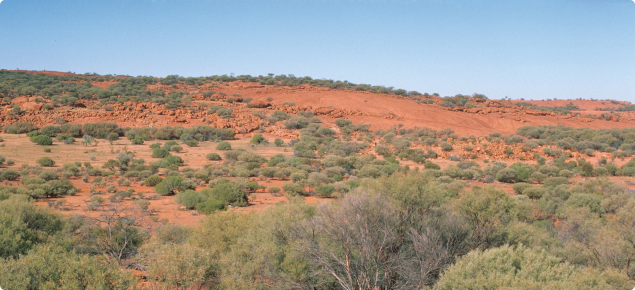
Southern Rangelands Revitalisation Program
The Southern Rangelands Revitalisation Program supports pastoralists to investigate and design long-term solutions for on-station improvements in rangeland condition and livestock profitability in WA’s southern rangelands. Read more about it here.
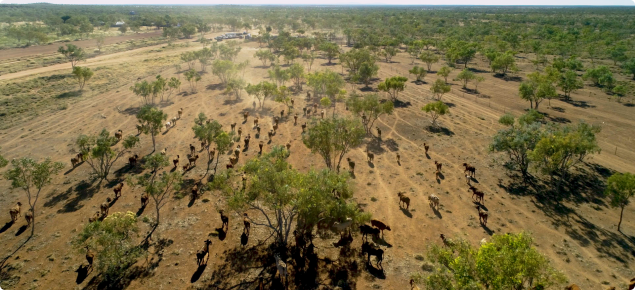
Northern Beef Development
The Northern Beef Development program aims to support the Western Australian northern beef industry to become more profitable, resilient, and sustainable. Read more about it here.
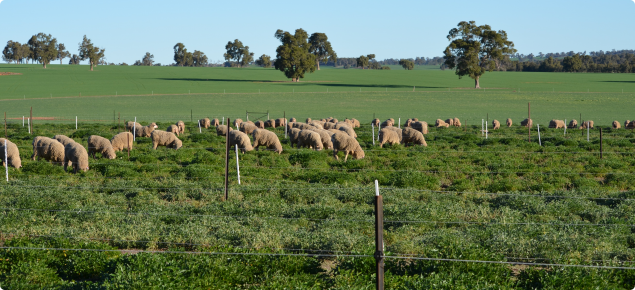
FEED365
The SheepLinks Program is a partnership between the Department of Primary Industries and Regional Development (DPIRD) and Meat & Livestock Australia (MLA), to underpin the future prosperity of the sheep industry in Western Australia. Read more about it on the DPIRD website and GGA project webpage.
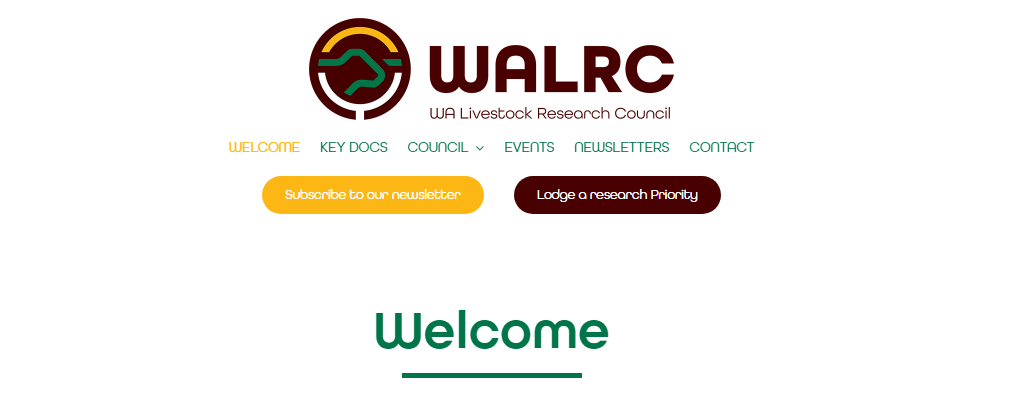
WA Livestock Research Council
The Western Australian Livestock Research Council (WALRC) is a structure that was initiated by Meat and Livestock Australia (MLA) to improve consultation with levy payers and industry stakeholders for the WA agricultural region and southern rangelands. Read more about the council here.
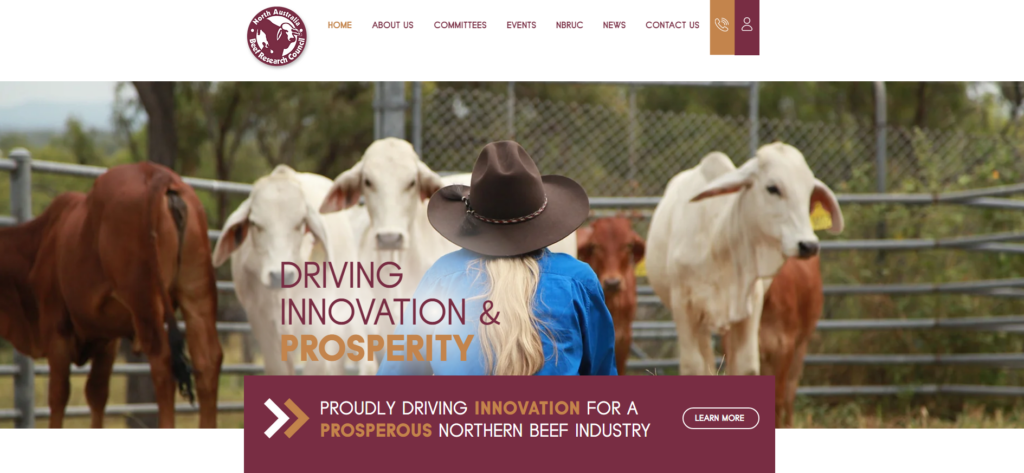
North Australia Beef Research Council
NABRC connects producers, researchers and industry stakeholders to drive improved production in Australia’s northern grass-fed beef industry. Read more about the council here.
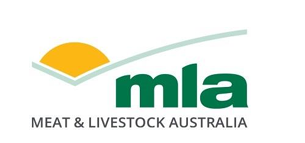
2022-24 Producer identified RD&A priorities
Review research, development and adoption project proposals that respond to the needs of red meat producers in southern WA by WALRC and across the Pilbara, and Kimberley regions of WA, NT & QLD by NABRC.
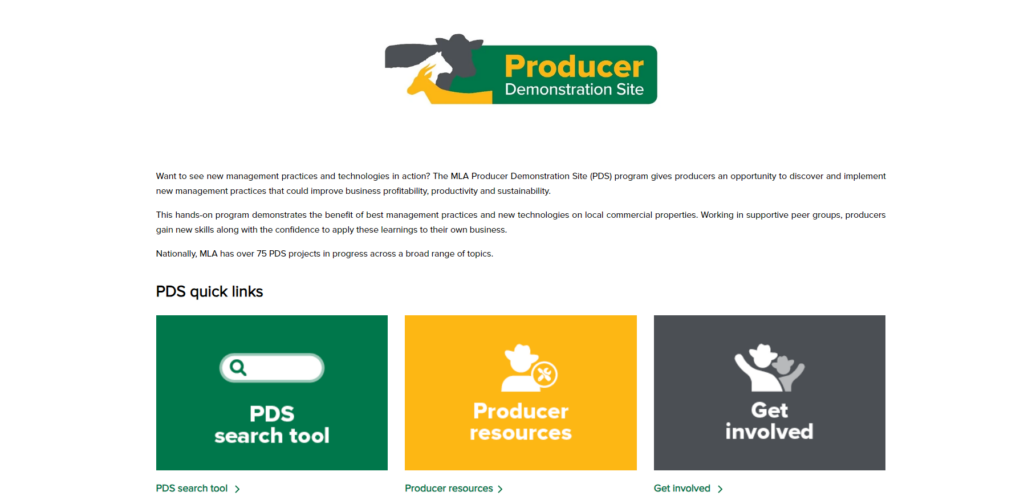
MLA Producer Demonstration Sites
The MLA Producer Demonstration Site (PDS) program allows producers to discover and implement new management practices that could improve business profitability, productivity and sustainability. Find out how to get involved here.
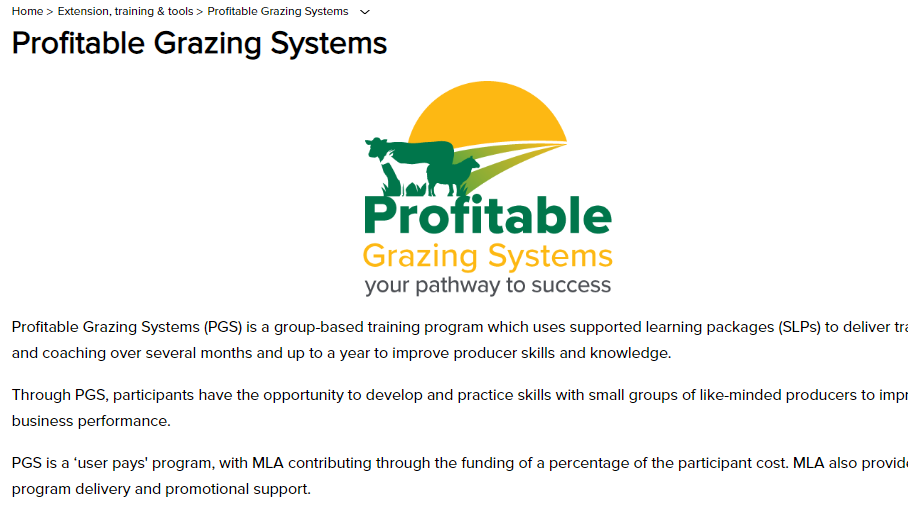
MLA Profitable Grazing Systems
Profitable Grazing Systems (PGS) is a group-based training program that uses supported learning packages to deliver training and coaching over several months and up to a year to improve producer skills and knowledge. The program covers topics and areas including grazing land management, meeting the market, benchmarking for profit and production. Find out how to get involved in the training program here.
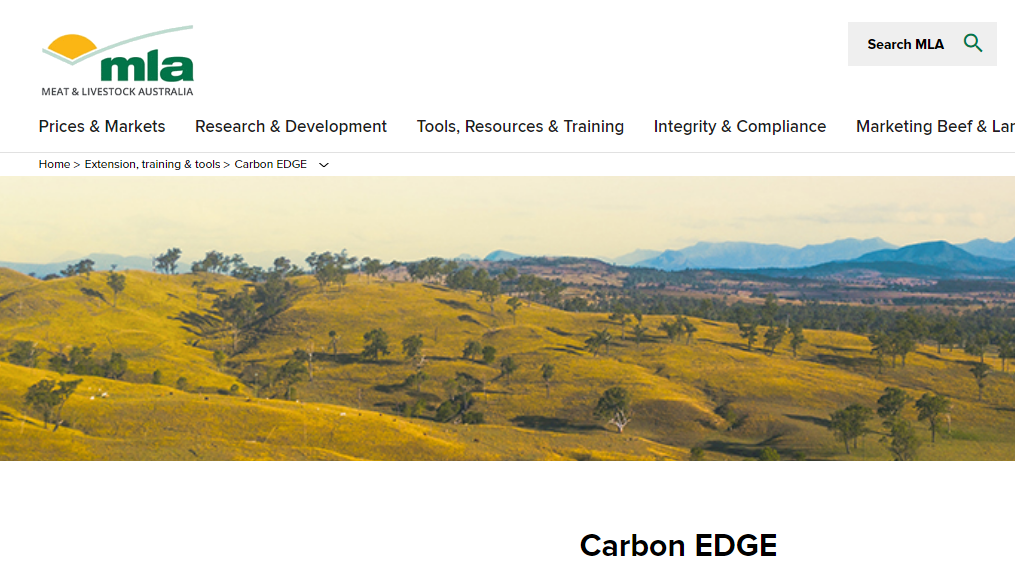
MLA Carbon EDGE
Carbon EDGE is a new two-day training program for the red meat industry, providing participants with an understanding of the opportunities for emissions reduction and carbon storage activities in a livestock grazing business. Find out how to get involved in the training program here.
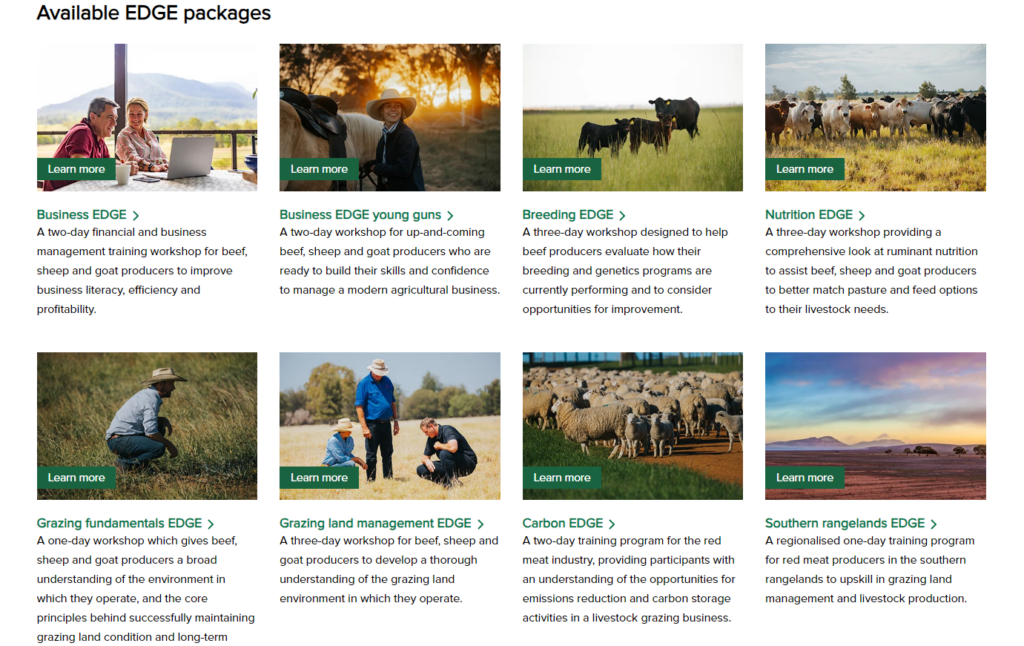
MLA EDGE Network
MLA’s EDGE network provides 1–3 day practical workshops for the red meat industry in business management, breeding, grazing land management, ruminant nutrition and carbon. Check out the workshop EDGE packages here.
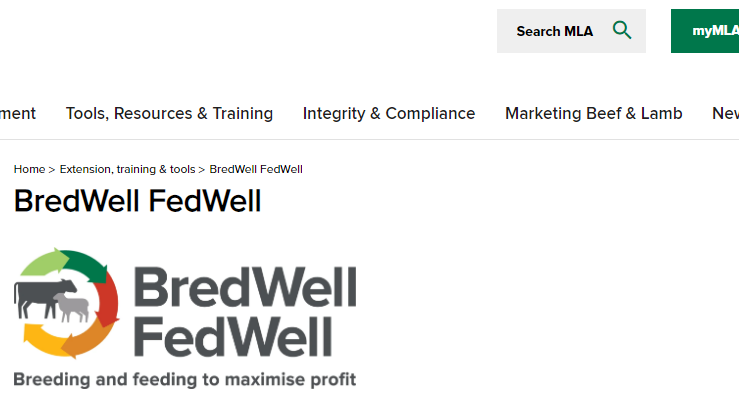
MLA BredWell FedWell
BredWell FedWell (BWFW) is a practical, one-day introductory workshop on how productivity and profitability can be improved through good breeding and feeding over the livestock production cycle, focussed on profit drivers. Find out how to get involved in this training here

MLA More Beef from Pastures online manual
This resource is an information package to deliver the essential principles and practices for a successful beef business. Access the manual here.
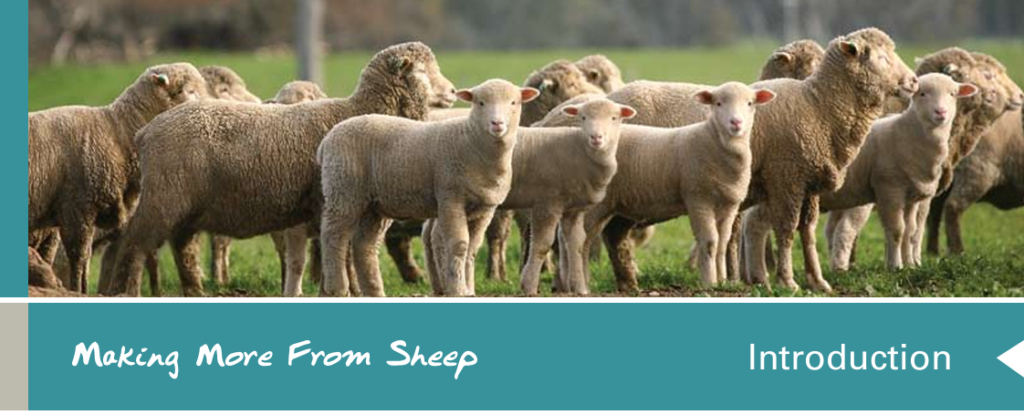
AWI and MLA Making More from Sheep website (online modules)
The Making More From Sheep website captures, in one handy reference, useful information about the ‘must dos’ of managing a successful sheep and/or wool enterprise, generated from years of research and on-farm experience. Access the online modules via the here.

MLA BeefUp Forums
Discover the latest in research, trials, tools and technology for the Australian beef industry through MLA’s BeefUp forums. Find upcoming event details here.
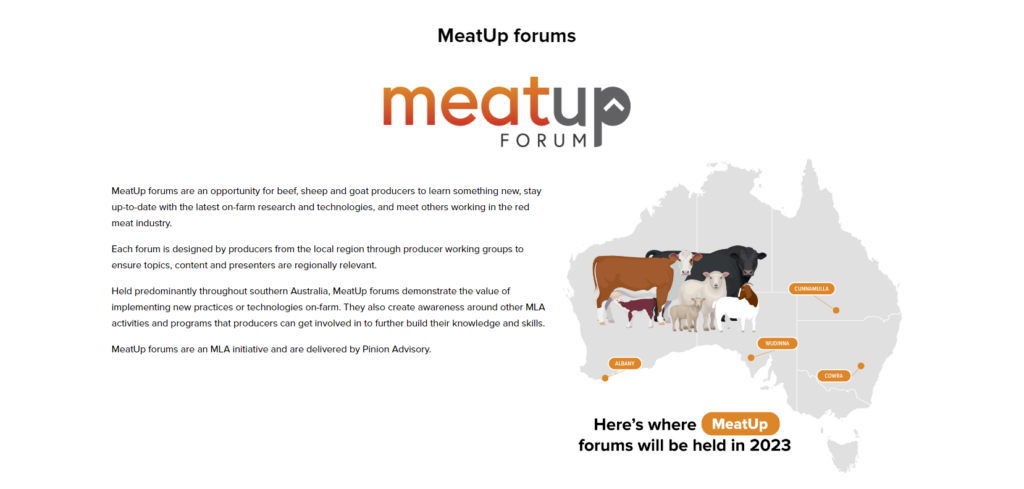
MLA MeatUp Forums
Held predominantly throughout southern Australia, MeatUp forums demonstrate the value of implementing new practices or technologies on-farm. They also create awareness around other MLA activities and programs that producers can get involved in to build their knowledge and skills. Find upcoming event details here.
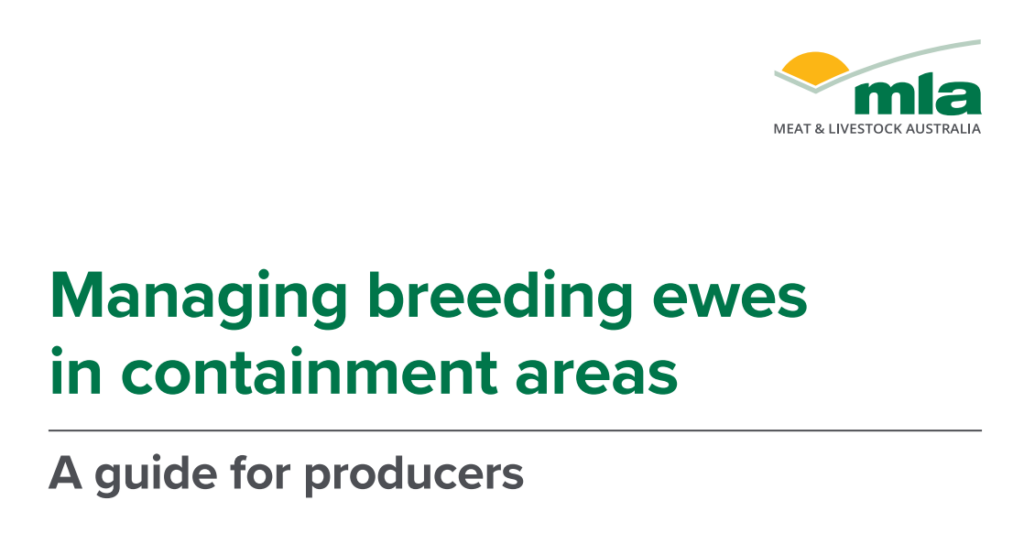
MLA Managing breeding ewes in containment areas
This guide from producers is a useful resource to assist with containment feeding. This is deployed as a regular strategy to maintain ewes over dry autumn periods when pastures and crops are insufficient. Access the guide here.
Emissions
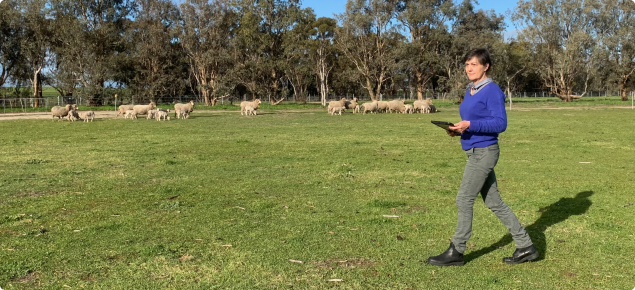
Carbon Life Cycle Analysis for the Western Australian sheep industry
The Life Cycle Analysis calculates the carbon footprint of the WA sheep industry at a state and regional level and includes information on the carbon intensity of sheep meat and wool. Access the analysis here.
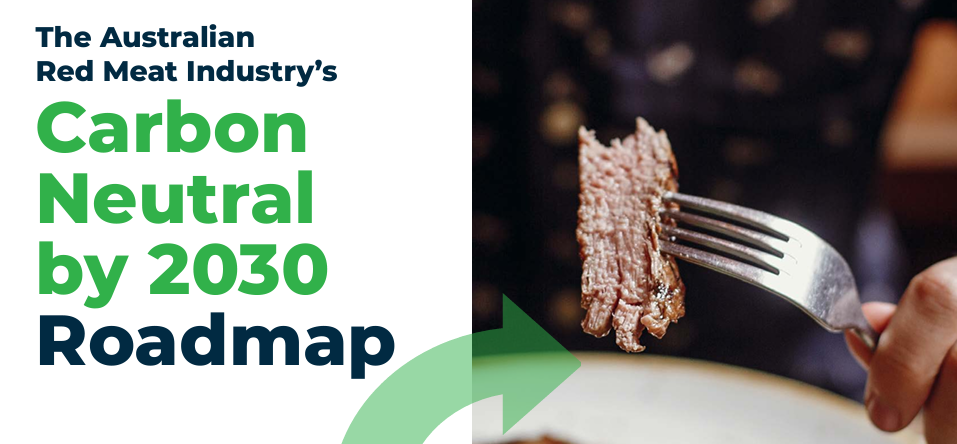
The Australian Red Meat Industry’s Carbon Neutral by 2030 Roadmap
The Australian red meat and livestock industry has created an opportunity to turn today’s challenges into tomorrow’s opportunities through its Carbon Neutral by 2030 (CN30) Initiative. Read the Roadmap here.
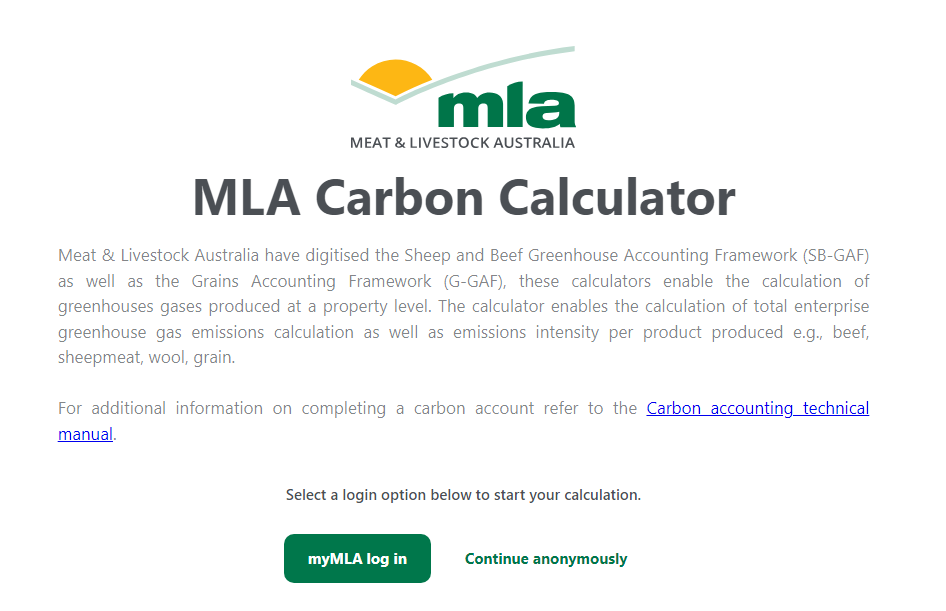
MLA’s Carbon Calculator
Meat & Livestock Australia have digitised the Sheep and Beef Greenhouse Accounting Framework (SB-GAF) as well as the Grains Accounting Framework (G-GAF), these calculators enable the calculation of greenhouse gases produced at a property level. Calculate your enterprise’s carbon here.
Goat Hub
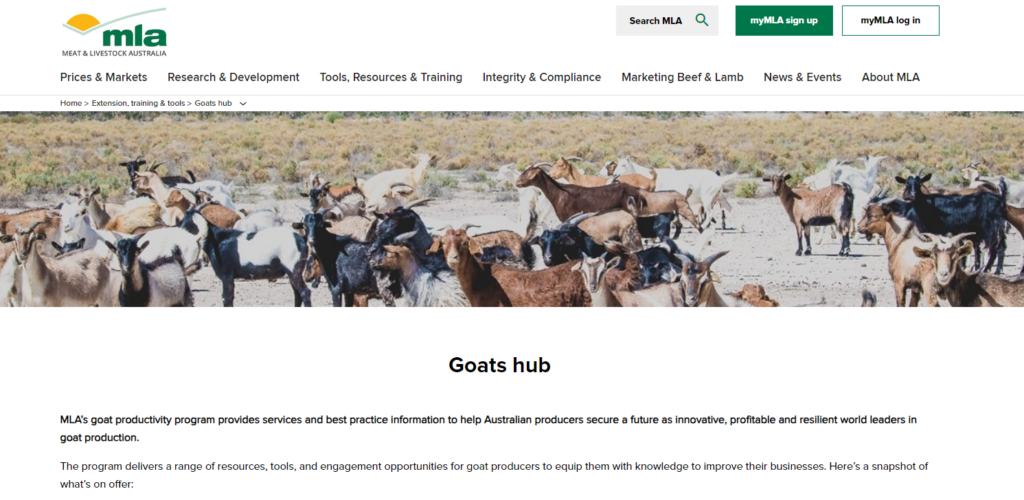
MLA Goats Hub
MLA’s goat productivity program provides services and best practice information to help Australian producers secure a future as innovative, profitable and resilient world leaders in goat production. See what’s on offer here.
Livestock Identification
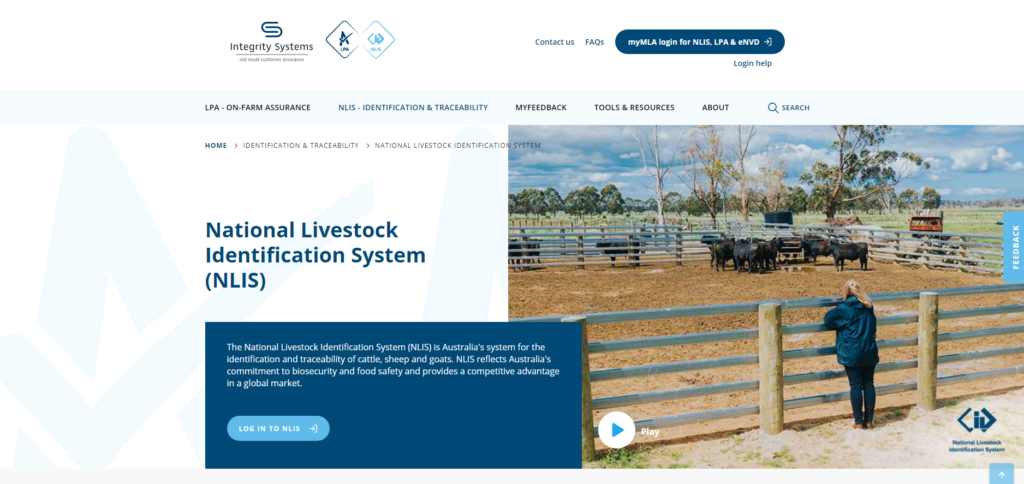
National Livestock Identification System (NLIS)
The National Livestock Identification System (NLIS) is Australia’s system for the identification and traceability of cattle, sheep and goats. NLIS reflects Australia’s commitment to biosecurity and food safety and provides a competitive advantage in a global market. Access it here.
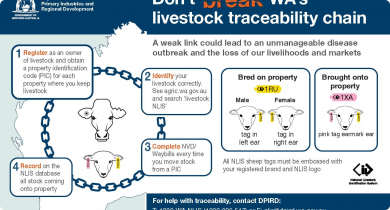
Livestock movement & identification requirements
Livestock movement and identification requirements help to keep WA free of these diseases, protecting our enviable disease-free status, as well as ensuring whole-of-life traceability for many livestock species. Familiarise yourself with DPIRD’s requirements here.
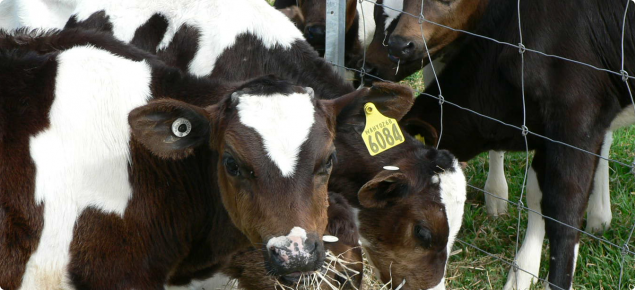
eID infrastructure grants now available to support farmers
The adoption of mandatory electronic identification (eID) for sheep and goats is a way of improving traceability practices for more efficient management of disease outbreaks, food safety issues and market access. Read the media release here.
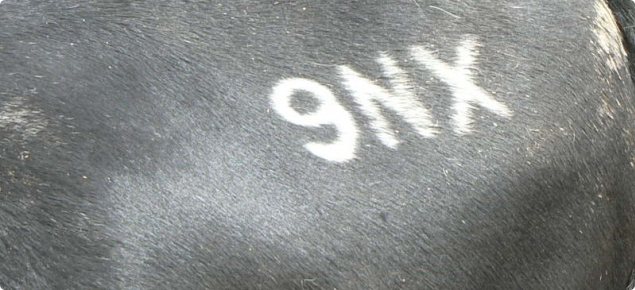
Registering as an owner of stock or as a beekeeper
All livestock owners and beekeepers within Western Australia must be registered and their stock identified by the Biosecurity and Agriculture Management (Identification and Movement of Stock and Apiaries) Regulations 2013 [the BAM (IMSA) regulations]. Stay abreast of the regulations here.
Add to this resource list
Enquiries
The best GGA contact for this body of extension work is Alison Lacey alacey@gga.org.au
